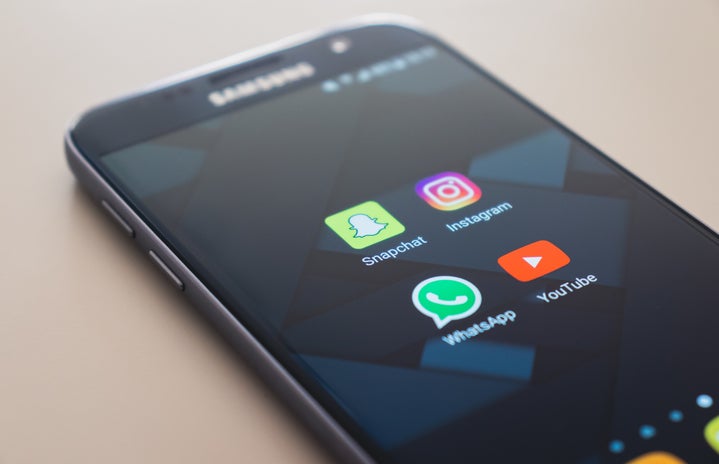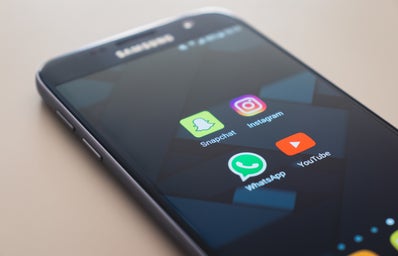Have you ever wanted to be best friends with your prof? Ask any student from the Department of Communication Studies and they will say yes. Carrie Rentschler is the coolest and funniest professor around, and her positive energy has earned her unofficial superstar status within the department. I was lucky enough to chat with her this week in her office, and I did not want it to end. Her Campus McGill proudly presents Professor Rentschler as she talks about studying martial arts, her current projects, and social media activism.
Idil Copur for Her Campus McGill (HC McGill): To start off, can you tell us a bit about yourself?
Carrie Rentschler (CR): I was born in the US in a town called Waterloo, Iowa. I moved to Minneapolis – Saint Paul when I was ten and I stayed in the Twin Cities through university. I got a bachelor’s degree from University of Minnesota Twin Cities in Humanities, and I moved to Urbana-Champaign, Illinois and got my master’s degree in Speech Communication. I stayed at Illinois for my PhD but I moved programs to the Institute of Communications Research, which is known for its work in feminist media studies, political economy of communication, cultural studies and international communication. Then I moved here in 2004.
The activist work I’ve done really started when I was in my late teens. When I was 19, I joined a feminist martial arts school to learn that art and also how to teach self defense to different body types in different contexts, in a way that was not about being violent towards others within the context of an anti-violence framework. When I moved to Illinois, there was also another feminist martial arts school in Urbana-Champaign and I studied there as well. It so happened that the person teaching there came from this school in Brooklyn, New York, where my sensei in Minneapolis had studied with, so we were all kind of connected. So I trained there as well, and some of the other students and I formed a feminist self-defense teaching collective. I saw that work as an activist work because for me it was a collectivized physical feminism. That kind of work has also defined a lot of my research interests.
HC McGill: What kind of martial arts did you practice?
CR: At the first school, Feminist Eclectic Martial Arts, there were seven different styles, but probably the most representative style was called goju, which is Okinawan style, and it really works on dynamic tension. It does a lot of slow movements and fast movements. For example, there were katas, which are scripted forms in martial arts where you display different moves as if you have an attacker in front of you but you don’t actually. It really was an interesting style and I loved it. That was the school that my sensei was trained in. And when I moved to Urbana-Champaign, I was able to build on my goju training from my other school, so I feel like that’s the art I practiced the most.
HC McGill: And how did you decide to study the intersection of media and feminism? How did you realize that was what you wanted to build your career on?
CR: When I was a grad student at University of Illinois, and doing self-defence teaching and martial arts training, one of my fellow co-teacher’s son was badly beaten on Halloween one year. She was really upset by it, rightly so, and we were training in that context to do a kind of anti-violence work that was really anti-carceral; it wasn’t about calling the police, supporting law and order policies and wanting to punish people. But in that context of witnessing your son becoming a victim of assault by a group, you can be drawn into that because you feel upset and angry when someone you love is hurt. So I was trying to make sense of this link between feminism and what I really thought was politics of punishment, and the victims’ rights movement. And my dissertation ended up being about the victims’ rights movement of the time, bringing feminist anti-violence perspective and tools of feminist media studies and cultural studies. That’s how I got into it and I was trained by a number of feminist media studies scholars. It was great; there was a lot of support for that kind of work.
HC McGill: What are the current projects you are working on?
CR: I have a couple of essay projects and a bigger project. The bigger project is a book that I’m working on about the construction of the bystander witness as a social agent of change. [The concept of] Bystanders as passive witnesses is being rewritten and reimagined in the context of social activism, specifically around sexual violence and bullying, where being a witness to that violence and to the activism around that violence is being used to train people – like how to use cellphones as activist technologies. So I’m doing a kind of mapping from the mid-60s to the present and looking at the shift in the ways we understand the bystander as a political agent.
HC McGill: I’m actually kind of familiar with your work on the 1964 Kitty Genovese murder. Her case is defined by these bystander witnesses choosing not to intervene with this violence going on outside of their apartments. Fast forward to today, where most people like taking digital media and online platforms to voice their opinions and show solidarity, what does the bystander phenomenon look like today? Is it still there?
CR: The Genovese case was very significant for a body of social psychology literature on what’s called the bystander effect. It was really catalyzed by that particular murder and really established what many people take to be universal truisms, which I think is unfortunate. It says that if you have a certain number of people in a place, more than three essentially, no one person will feel responsible for intervening. A distinction is often made between a bystander and a witness. The witness has the active position where watching or seeing or hearing is a chosen, decisive, volitional act. And I think it’s in a lot of today’s activist movements, such as the #blacklivesmatter movement and cop watching movements, where they really spread when you have a mobile video recording equipment. Today we see this being mobilized to reimagine the community as a body of potential responders and interveners. I think a lot of the bystander intervention stuff we see are really about mobilizing communities.
HC McGill: What do you think of social media’s role in today’s social activism? What are the shortcomings of the use of social media in this context?
CR: First of all, I think they are very useful. It’s kind of a key form of reporting things that journalists and reporters may not have access to. There is a direct link between a lot of the contemporary demonstrations and the use of social media so it can be used as a mobilization tool. There are a lot of people saying social media is slacktivism, clicktivism, or you feel like you’re being political by clicking a button or by liking things.
HC McGill: Another kind of bystander effect…
CR: That’s how it’s often described, as a bystander effect. I tend to think of social activism as a cluster of different kinds of practices. Consciousness raising is really crucial work and a lot of consciousness raising is happening on social media. Tons of consciousness raising around on sexualized and racialized violence is happening through Twitter feeds and hashtags, and maybe less so in official forms of education. For me, that’s absolutely crucial – what do people need to know in order to understand their world differently, in such a way that they feel they’re complicit or implicated. There’s such a linkage between the shifting forms of activism we see, the models of public assembly and the ways in which words get out. Again, it’s a very important activist reporting tool among other things.
HC McGill: What would be a book you would recommend for people who want to educate themselves in feminism and media?
CR: I like the ones I’m teaching. They’re so accessible, well-written and conceptually rich. Especially Unspeakable Things – I think Laurie Penny’s book is really interesting. I do like Bad Feminist, too. What else would i say? I think Andi Zeisler’s book, We Were Feminists Once, is really interesting as well. I’m going more for popular stuff here rather than academic things. Some of the great sites for people to learn stuff, like the Crunk Feminist Collective, do such amazing work.
HC McGill: Trolls targeting women on the Internet is a huge problem that surrounds most online communities. I’m aware that there is no simple way to go about this, but what do you think would be a good start for an effective way of fighting trolls online?
CR: Such a great question. Whitney Phillips, who is written a book on trolls, has some really good advice for us. One is to stop calling it “trolling.” What “troll” actually refers to, particularly in male identified misogynistic geek culture, is someone who is playing a game with harassment. So let’s stop defining the problem based on the terms that the abusers give themselves, and lets really talk about how these harassers and perpetrators reveal the kind of work they do. Ignore the advice “stop feeding the trolls,” which tells us not to say anything that might set off a troll and puts all the responsibility on us as individuals rather than people doing that violence. So instead, take screenshots and post them online to reveal that violence to a larger audience to make it more collective. Figuring out ways to protect yourself and your privacy is very important as well, such as developing strategies to encrypt emails and texts, and thinking about what do we want to make public and what we don’t want to make public. The unfortunate thing is we have to think in those terms, which is itself one of the structures of violence. That’s a number of things, and it’s a start.
HC McGill: If you could give a piece of advice to your college-self, so we’re talking about your early 20s, what would it be?
CR: That’s interesting. There are certain advices, like travel more, take advantage of opportunities. If I could go back, I would travel abroad and not wait so long to travel internationally because when you do that you really defamiliarize your surroundings and denaturalize your life in ways that can be very productive. My other advice would be figuring out better ways to respond to conflict in relationships. As a younger person, I was really quick to just cut ties with people if I felt someone had done me wrong, and now I realize how valuable friendships are, especially friendships that last a long time.
HC McGill: What do you like to do outside of classes and research?
I play music – the drums – I just started about a year and a half ago, so that’s great. I love to cook, I watch a lot of TV, I read a lot of news. I read a lot of novels, too. Mystery novels are usually my favourites. Oh, and I like cats a lot.
Don’t miss Professor Rentschler’s talk as the final installment of Her Campus McGill’s Women in Media Speaker Series! Find out more here.
Cover photo provided by the interviewee.
Body photo obtained from: http://www.mcgilldaily.com/2014/10/uphill-battle-consent-culture/

